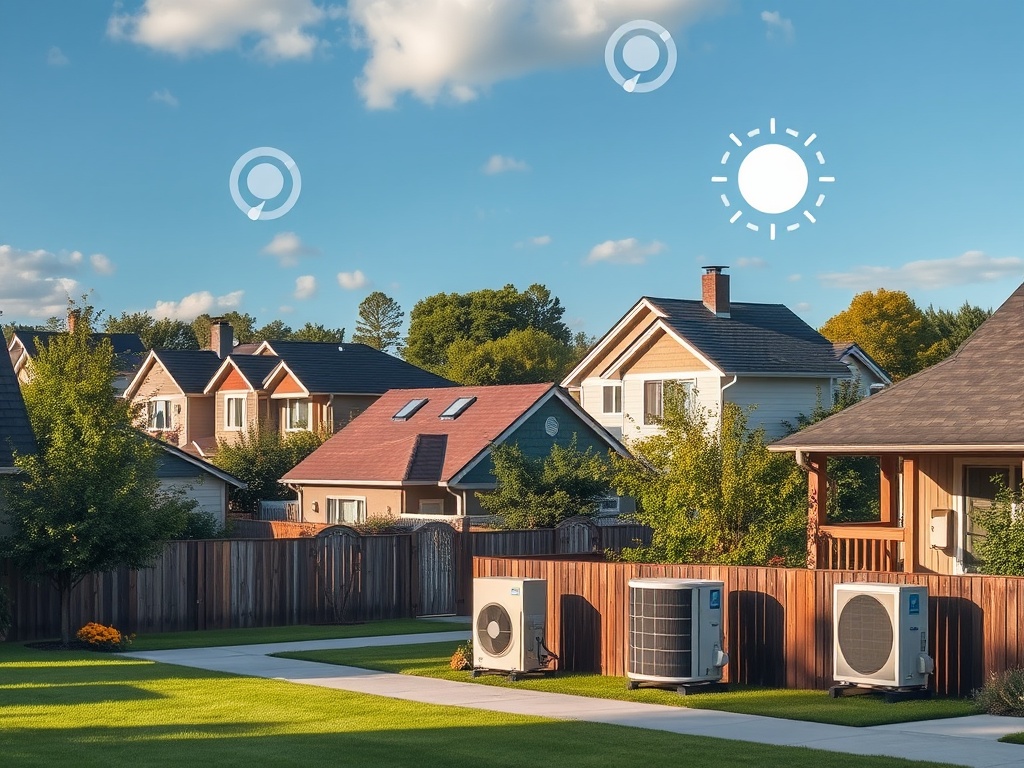The ongoing campaign urging homeowners to transition from gas central heating to electricity-powered heat pumps stands as one of the most controversial elements of the Government’s climate strategy. Heat pumps extract heat from the air or ground rather than relying on gas, which is among the most carbon-intensive methods for heating homes. While the installation costs of heat pumps are generally higher than that of traditional gas boilers—often necessitating larger radiators or enhanced insulation—the long-term savings on energy bills can offset the initial investment. However, there are critics who argue that heat pumps may not provide adequate warmth and question the necessity of achieving net-zero carbon emissions.
A recent report concerning the installation of a heat pump in the Parliament building, Portcullis House, has drawn attention from some MPs who have voiced their concerns.
Read Next
- HEAT PUMPS
Yes, heat pumps can be fitted into older, larger homes
As reported by The Telegraph, the study suggested using air-source heat pumps for Portcullis House, but it cautioned that the “most prominent risk” lies in acoustics and the power supply. The report, prepared by energy consultants Troup Bywaters and Anders, states, “Although we recommend the air source heat pumps, we would strongly advise caution and suggest that alternate power sources be explored.” Some MPs have criticized the Government for promoting a heating system while expressing doubts about its applicability within parliamentary buildings.
Here, The i Paper examines how the claims from the report and the opinions of MPs align:
Claim: Heat pumps are too noisy
The most prevalent type of this technology, known as air-source heat pumps, typically emits noise levels ranging from 40 to 60 decibels (dBA). This range is comparable to that of a standard gas boiler or a dishwasher. However, it is important to note that a heat pump operates continuously in colder weather. Unlike gas boilers, heat pump units are usually installed outside, adjacent to the home, which means there are regulations regarding their proximity to neighboring properties. Specifically, a heat pump cannot be installed if it generates noise levels exceeding 42 dBA within one meter of a neighbor’s residence. Noise levels diminish significantly with distance, making them less of an issue for semi-detached houses, although they can be problematic for terraced homes with narrower gardens, as explained by Bean Beanland, a director of the Heat Pump Federation. Installers can assess expected noise levels during their initial site survey. “We would visit a prospective client’s location, discuss their options, and determine the best placement for the unit,” Beanland elaborated.
Verdict: Unclear
Portcullis House may soon have a heat pump installed (Photo: Ray Wise/Getty Images/Moment RF)
Claim: Heat pumps use too much power
While the decision regarding Portcullis House remains uncertain, Parliament has already installed three heat pumps in various locations, although the specific sites remain undisclosed. Reform MP Richard Tice claimed to The Telegraph that “each of them has encountered complaints regarding excessive electricity consumption and noise.” Investigating this claim is challenging without access to the electricity bills associated with the three existing heat pumps, separated from the estate’s overall electricity usage. Heat pumps do consume electricity to extract heat from the air or ground, which naturally results in a higher electricity bill. “This is not surprising,” noted Dr. Jan Rosenow, an energy researcher at the University of Oxford. However, it’s important to consider that heat pumps can significantly reduce gas bills. When heat pump installations coincide with homeowners switching to smart electricity tariffs—where energy costs less during off-peak hours—savings of around £234 per year are possible, according to Octopus Energy, based on current gas and electricity costs. The time it takes for a heat pump to pay for itself depends on the initial installation costs and future changes in electricity prices. Currently, prices are inflated due to green tariffs, but proponents argue that a government aiming to encourage the shift from gas to heat pumps may reconsider such tariffs.
Verdict: False
Claim: Heat pumps are not effective

The concerns raised in the report regarding Portcullis House serve as “a prime example highlighting why heat pumps don’t work. Yet Labour continues to push for their widespread adoption, which could leave people poorer and colder,” Conservative MP Greg Smith expressed to The Telegraph. Critics argue that heat pumps fail to sufficiently heat homes. These systems circulate water through radiators at lower temperatures than gas boilers—approximately 50°C compared to 70°C—but this can be compensated by operating the pumps for extended periods and installing larger radiators and improved insulation if necessary. Advocates of heat pumps assert that instances of insufficient heating are generally due to inadequate installation practices, such as failing to incorporate larger radiators. The Heat Pump Association recommends that consumers employ only certified installers. Furthermore, the broader effectiveness of heat pumps in large office buildings like Portcullis House does not directly impact the decisions homeowners make, Dr. Rosenow pointed out. Each residence is unique, and homeowners can only determine if a heat pump is suitable for them after consulting with an installer. He added, “There are numerous historic, large public buildings globally that are effectively heated with heat pumps. There is no technical reason why it wouldn’t work.”
Verdict: False




